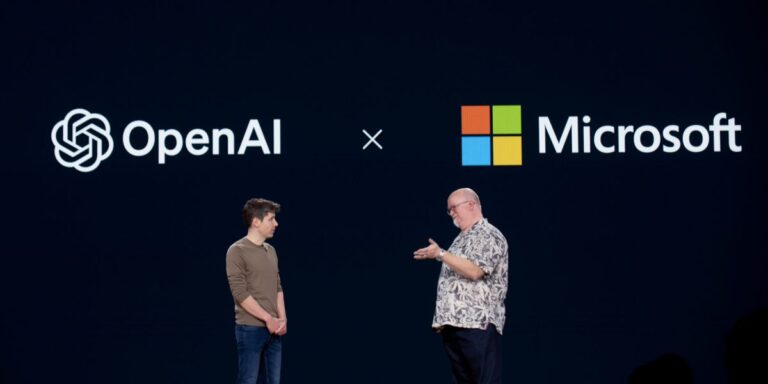
Microsoft Corp.the investment of 13 billion dollars in OpenAI Inc. is set to face increased scrutiny from European Union antitrust watchdogs, who are set to probe rivals over the AI company’s exclusive use of Microsoft’s cloud technology.
Margrethe Vestager, the bloc’s antitrust chief, announced on Friday that the EU had excluded an investigation under EU merger rules into the deal. Instead, she announced that regulators were questioning Microsoft’s competitors about the US company’s exclusivity clauses with OpenAI and whether they could have a negative effect on competition.
Bloomberg reported the news earlier.
In addition to the focus on Microsoft, the EU will also issue questions to the market on Google’s solutions. arrangement with Samsung Electronics Co. to pre-install its small “Gemini nano” model on certain devices.
Vestager added in a speech that regulators were scrutinizing Big Tech’s attempts to buy up companies through mass hiring. The EU’s first step comes after the US Federal Trade Commission’s decision spear investigations into Microsoft’s hiring of Inflection staff.
“We will ensure that these practices do not escape our merger control rules if they lead to concentration,” Margrethe Vestager said.
Under the agreement between Microsoft and OpenAI, Microsoft’s Azure is the exclusive cloud provider for OpenAI – something European regulators are keen to examine further.
These preliminary EU questions can sometimes lead to formal investigations by EU competition authorities. These investigations can, in the long run, result in orders to change behaviour and potential fines if the watchdogs uncover evidence of abusive practices that hinder fair competition.
“We appreciate the European Commission’s thorough review and conclusion that Microsoft’s investment and partnership with OpenAI does not give Microsoft control of the company,” Microsoft said. “We stand ready to answer any additional questions the EC may have.”
OpenAI
The EU’s antitrust arm said in January it was examining whether Microsoft’s involvement in OpenAI should be examined after a mutiny at the creator of ChatGPT exposed the deep ties between the two companies.
The partnership first attracted interest from regulators – including, in addition to the EU, the UK’s Competition and Markets Authority and the US Federal Trade Commission – since a scandal engulfed the AI company over the firing and then rehiring of Sam Altman as head of OpenAI late last year.
Microsoft CEO Satya Nadella personally helped negotiate and advocate for his return to the company – at one point offering to hire Altman himself, along with other OpenAI employees who wanted leave.
OpenAI’s board ultimately agreed to reinstate Altman and the company subsequently appointed a three-person interim board of directors and added Microsoft as a non-voting observer.
This episode led regulators to examine the deal. The British watchdog said it would examine whether the balance of power between the two companies had fundamentally shifted to give one side more control or influence over the other, and the Federal Trade Commission American investigated the deal.
At the heart of Microsoft’s partnership with OpenAI is the massive computing power needed to sustain the global boom in generative AI. Leveraging the systems behind tools like ChatGPT and Google’s Bard has driven demand for cloud services and processing power through the roof. OpenAI, for example, has become a major customer of Microsoft’s cloud business.
Under EU merger rules, authorities review transactions within strict deadlines and often request solutions to ease specific competition concerns. Although deals are rarely vetoed, companies are generally not punished unless they mislead regulators or block the process.
Classic EU competition law is generally used to target potentially anticompetitive agreements between companies as well as cases where powerful players abuse their dominant position. If wrongdoing is found, fines can reach 10% of a company’s turnover.
Microsoft, based in Redmond, Washington, is not a stranger to EU antitrust watchdog and has fought a long battle with regulators in recent decades over abuses linked to Windows’ market dominance.
This week, the EU accused the company of abusing its market power by bundling its Teams video conferencing app with its other business software.


